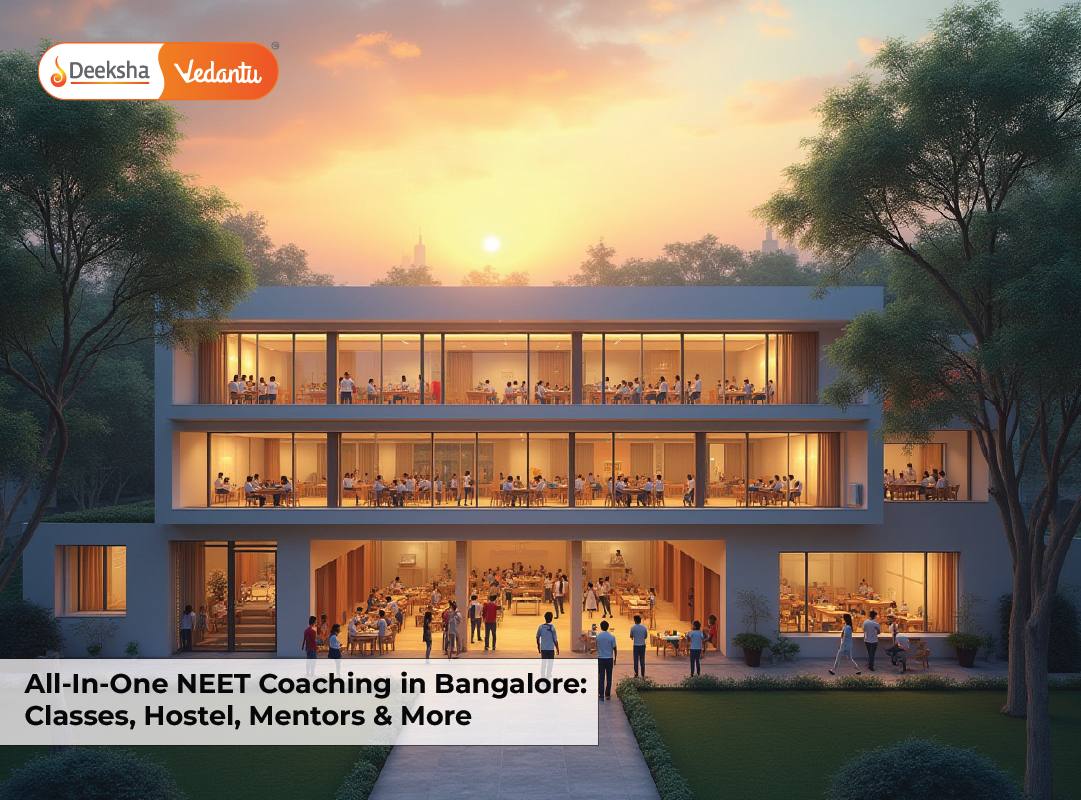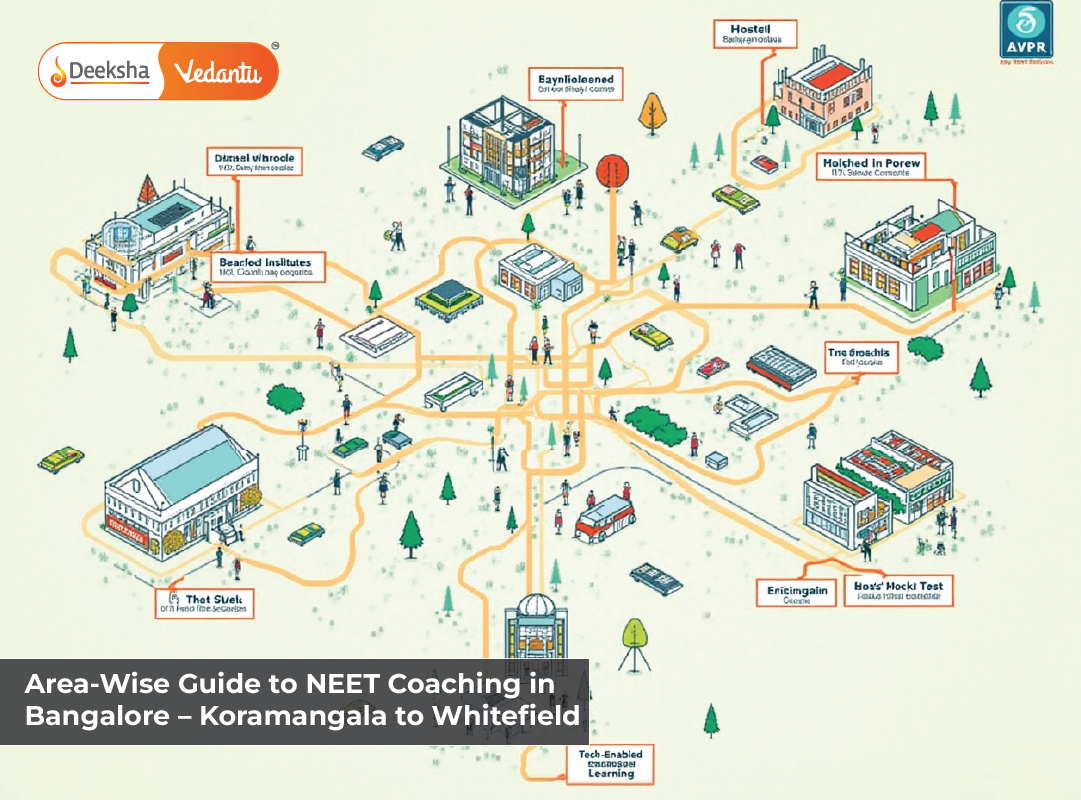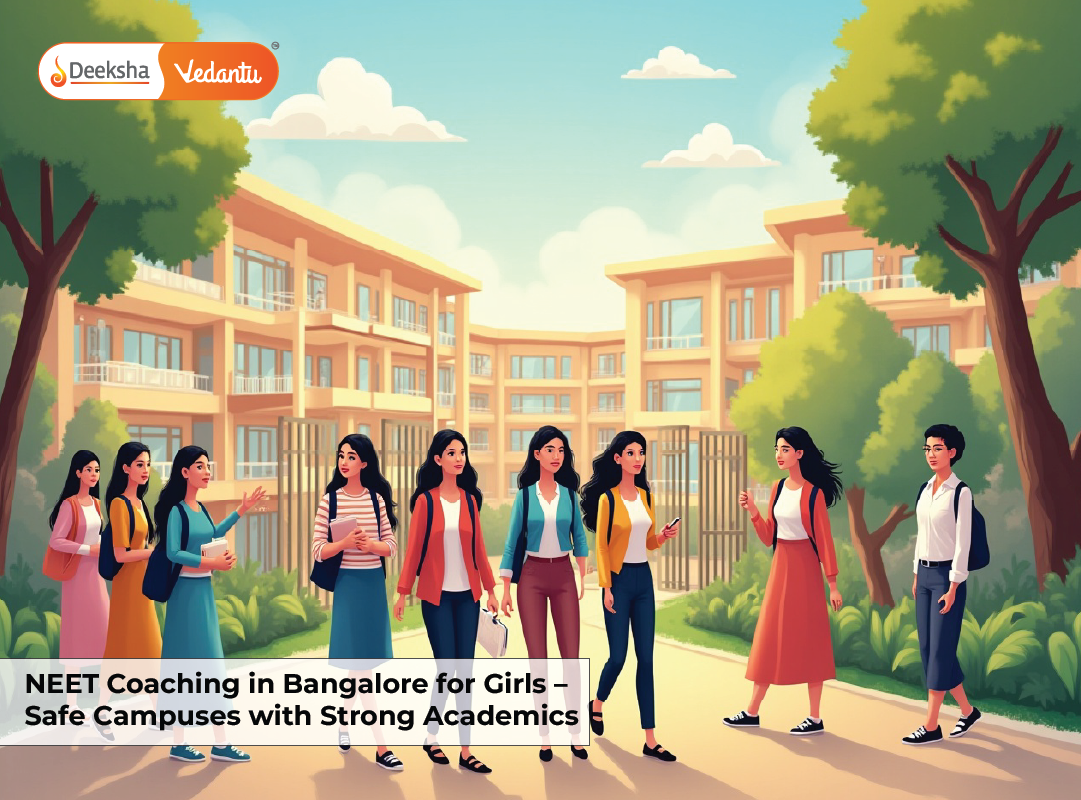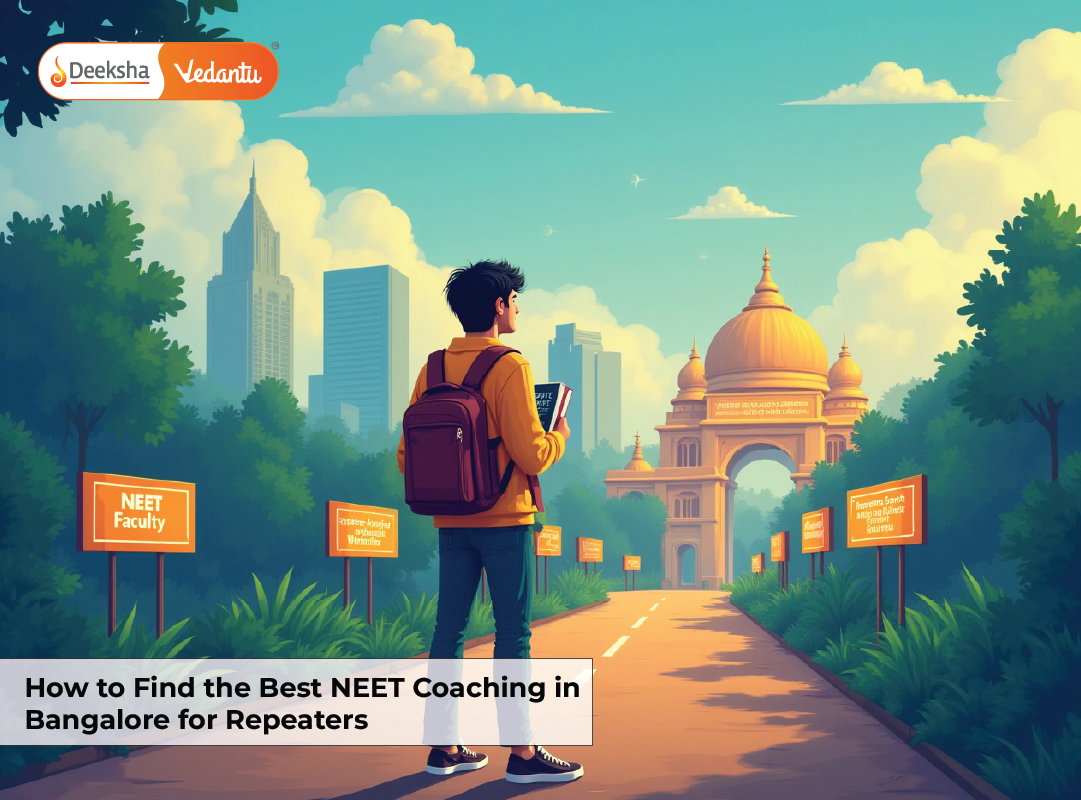Introduction
While academic achievement is often the primary focus of Pre-University (PU) education, the residential format offers an equally powerful but sometimes overlooked advantage—personal growth. Living and learning in a residential environment builds life skills that go far beyond textbooks. Students not only learn to excel in their studies but also develop independence, adaptability, emotional intelligence, and resilience that prepare them for the real world.
At Deeksha Vedantu, our residential PU programs are designed to nurture holistic development. We offer structured academic support alongside ample opportunities for self-discovery, peer bonding, and personal evolution. In this blog, we’ll explore the hidden benefits of residential PU education and how it shapes young individuals into confident, self-reliant, and emotionally mature adults.
Developing Independence and Self-Discipline
One of the most significant transformations students undergo in residential PU education is the shift toward self-reliance. Being away from the comfort of home teaches students to manage their own time, responsibilities, and challenges.
Key Takeaways:
- Establishing daily routines without parental supervision
- Managing personal hygiene, schedules, and academic tasks
- Becoming accountable for personal and academic responsibilities
- Learning to navigate minor problems independently
Over time, students evolve into disciplined individuals capable of making informed choices. These habits also build a sense of pride and self-worth, as students realize the extent of their capabilities and maturity.
Strengthening Emotional Resilience
Residential PU life isn’t without its challenges. From homesickness to academic pressure and interpersonal conflicts, students face various emotional situations that test their mental strength.
Benefits for Emotional Growth:
- Developing coping mechanisms for stress and anxiety
- Building emotional awareness and empathy
- Navigating peer pressure and disagreements constructively
- Learning to seek help and practice self-care
At Deeksha Vedantu, we incorporate emotional intelligence sessions, wellness workshops, and access to on-campus counselors. This ensures students are never alone in their journey and always have a support system.
Commerce PU courses at Deeksha Vedantu
Enhancing Communication and Social Skills
Living with peers in a shared space encourages daily interaction, collaboration, and conflict resolution—critical life skills that prepare students for college, career, and beyond.
Social Development Benefits:
- Making friends across diverse backgrounds
- Learning to live and work with different personalities
- Participating in group discussions and campus events
- Building confidence in expressing thoughts and ideas
Students also improve their ability to listen, negotiate, and empathize. These social experiences provide lifelong tools for building meaningful relationships and professional networks.
Discovering and Developing Leadership
Leadership in residential PU colleges emerges in subtle but impactful ways. From organizing events to guiding juniors and leading study groups, students are encouraged to step up.
Leadership Opportunities:
- Representing hostel groups or academic committees
- Leading peer study groups or club initiatives
- Participating in student government or event coordination
- Mentoring new students and resolving minor disputes
Through such initiatives, students learn the value of taking initiative, accepting responsibility, and making decisions that benefit others—not just themselves. These are hallmarks of future leaders.
Science PU programs offered by Deeksha Vedantu
Encouraging Healthy Habits and Routines
Living on campus encourages students to adopt structured habits that enhance their overall well-being.
Positive Habit Formation:
- Fixed schedules for study, meals, and rest
- Regular physical activity and group sports
- Healthy eating routines and time-bound sleep
- Balanced digital and offline interaction
When routines become habits, students gain energy, focus, and confidence in their daily lives. Such foundational habits often stay with them into adulthood.
Fostering a Growth Mindset
A residential academic environment introduces students to the concept of continuous improvement. Mistakes are seen as learning opportunities rather than failures.
Growth Mindset Development:
- Facing new challenges without fear
- Celebrating progress over perfection
- Accepting feedback constructively
- Staying motivated through setbacks
At Deeksha Vedantu, mentors reinforce the importance of effort, persistence, and positive thinking. Students learn that failure is a step toward learning and growth.
Building Cultural Awareness and Tolerance
With students from diverse regions and backgrounds, residential campuses are microcosms of a broader society.
Cultural Exposure Benefits:
- Exposure to different languages, cuisines, and customs
- Understanding varied perspectives and traditions
- Celebrating diversity through festivals and events
- Promoting inclusivity and mutual respect
These experiences shape open-minded, global citizens who value inclusivity and mutual understanding.
Improving Problem-Solving and Critical Thinking
Day-to-day life in a residential setting comes with mini challenges—misplaced books, laundry mix-ups, or even interpersonal misunderstandings. These seemingly small hurdles foster a proactive, solution-oriented mindset.
What Students Learn:
- Making quick, informed decisions
- Dealing with consequences responsibly
- Finding creative solutions under pressure
- Thinking independently while evaluating pros and cons
These skills are critical not just in academics but in personal and professional arenas too.
Table: Hidden Benefits of Residential PU Education
| Area of Growth | Benefit |
| Independence | Self-care, time management, personal responsibility |
| Emotional Intelligence | Empathy, coping skills, emotional regulation |
| Communication Skills | Conflict resolution, group interaction |
| Leadership | Event management, peer mentorship |
| Healthy Lifestyle | Balanced meals, fitness, regular routines |
| Mindset | Resilience, adaptability, lifelong learning habits |
| Cultural Awareness | Tolerance, inclusivity, broader worldview |
| Critical Thinking | Decision-making, problem-solving, initiative |
Creating a Supportive Community
The sense of belonging and community in residential PU life contributes immensely to emotional and psychological well-being.
Community Support Includes:
- Study groups and academic collaboration
- Peer encouragement and shared goals
- Campus celebrations, clubs, and cultural activities
- Faculty guidance and non-judgmental mentor support
When students feel seen, heard, and supported, their confidence flourishes. The bonds they build often last a lifetime.
Preparation for Life Beyond PU
Personal growth during PU lays the foundation for future success in college and professional life.
Life Skills Gained:
- Problem-solving and decision-making
- Financial awareness and budget management
- Conflict resolution and negotiation
- Time prioritization and stress management
- Confidence to navigate unfamiliar environments
Whether it’s living independently in college or managing responsibilities at work, students from residential PU backgrounds enter the next phase of life better prepared and more self-assured.
Parental Perspective: Growth Beyond Academics
Many parents initially worry about sending their children away from home. However, they often observe a dramatic and positive shift in their child’s maturity, confidence, and responsibility after spending time in a residential PU setting.
Observed Benefits by Parents:
- Better time management and self-motivation
- Stronger communication with family
- Proactive behavior in academics and chores
- Greater awareness of the world and community
This shift isn’t temporary—it becomes part of their child’s identity.
FAQs
Is residential PU education suitable for introverted students?
Yes. In fact, many introverted students gradually gain confidence through structured exposure and supportive interactions.
Do students get homesick? How is it managed?
Homesickness is common initially. Deeksha Vedantu provides emotional support, mentor interaction, and regular communication with parents to ease the transition.
How does residential life impact academic focus?
With fewer distractions and better structure, residential life often enhances academic concentration and discipline.
Are there non-academic opportunities in residential programs?
Yes. Students participate in extracurriculars, wellness sessions, leadership activities, and skill-based clubs.
Is personal growth measured or supported formally?
Through mentorship, regular feedback, and wellness check-ins, Deeksha Vedantu supports and tracks students’ holistic development.
Do students learn financial responsibility in residential settings?
Yes. They manage allowances, understand budgeting, and make informed spending decisions, which builds financial awareness early on.
Conclusion
The hidden benefits of residential PU education extend far beyond academic results. It’s a transformative experience that nurtures personal growth in every dimension—emotional, social, physical, and intellectual. Students leave residential programs not just as high scorers but as well-rounded individuals prepared for the demands of life.
At Deeksha Vedantu, we take pride in creating a supportive environment where students can evolve at their own pace while discovering their strengths. Our holistic approach ensures every student walks out with more than just a report card—they gain life skills, friendships, memories, and confidence that last a lifetime.
Table of Contents















Get Social